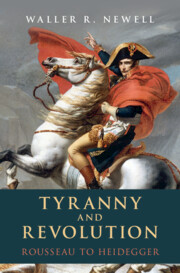1 - Escape to Lake Bienne
How Rousseau Turned the World Upside Down
Published online by Cambridge University Press: 28 May 2022
Summary
The Philosophy of History’s search for a renewed sense wholeness originated in the paradoxes of Rousseau. He detested modern liberalism for producing the materialistic “bourgeois.” He wanted to restore the ancient concern with civic virtue and happiness to counteract this spiritual debasement. But because Rousseau accepted the modern account of nature as matter in motion, yielding appetitive individualism and identifying reason with utility, he could only promote the nobler dimension of human life as the freedom of will to oppose oneself to nature and reason altogether. This created a contradiction between nature and freedom, and undermined political authority by suggesting that no form of government could return us to our original natural happiness in a lost Golden Age, corrupted as we are by the progress of civilization. The Jacobins took this as a call to collectivist revolution and the return to “the Year One.” Alternatively, Rousseau extolled the Romantic notion of the solitary artist who seeks his happiness outside of civil society. These explosive tensions between natural happiness and political authority were grappled with by Rousseau’s successors, who sought ways of healing the division in man between his natural self and his free self.
Keywords
- Type
- Chapter
- Information
- Tyranny and RevolutionRousseau to Heidegger, pp. 7 - 39Publisher: Cambridge University PressPrint publication year: 2022



